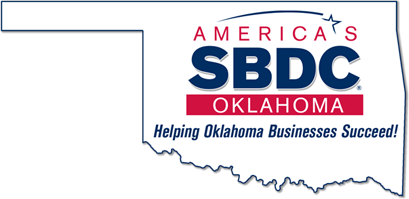Paying Yourself When You Start a Business
An Original Article from Businessweek.com
(Clarifies sixth paragraph to show two types of taxes would be owed.)
I recently formed a recording studio as an LLC, but I am anxious about all the income going into accounts receivable and having less immediate income for me and my family. Does this money circulate within my business only to pay business expenses, or can I use some of the money to enjoy the fruits of my labor without putting myself on the payroll right away? —J.U., Phoenix, Ariz.
Since you formed your company as a limited liability company, as the owner you are considered a “member” of the LLC by the Internal Revenue Service. If you’re a one-member LLC, the IRS will treat your company the same as a sole proprietorship for tax purposes. While you can hire employees, you will never put yourself on the company payroll since you are not considered an employee.
Instead, when you want to take money from the company, it will be in the form of an owner’s draw, says Jim Sharvin, a CPA with McDowell, Dillon & Hunter in Torrance, Calif. It is as simple as writing a check from the company to yourself and depositing it in your personal account, which should be kept separate from your business accounts.
“You may use money from the business for yourself, but know that the money you take out of the business will be subject to taxes at the individual tax filing level and subject to self-employment taxes,” says Lisa Schwartz, a CPA with Mitchell & Schwartz in Camarillo, Calif. In 2012 the self-employment tax rate is 13.3 percent for business owners on the first $110,100 of income and 2.9 percent on any income more than that amount.
For practical purposes, this means you’ll need to keep track of all your draws and set some of that money aside for taxes if your business is profitable. After your business gets established, you will pay self-employment tax in estimated quarterly payments to the IRS—something that can come as a shock if you’re used to being an employee and having taxes withheld from your paycheck.
Along with self-employment tax, you’ll need to remember that your recording studio’s 2012 profit or loss will be reported on your personal income tax return next April. If you make a profit, you’ll pay both self-employment and income taxes on that amount whether you have taken it for personal use or not.
All this will be much clearer if you work with an accountant familiar with small business, says Gregg Landers, managing director at accounting firm CBIZ MHM in San Diego. A trustworthy accountant can help you forecast your balance sheet so “you can understand what your studio’s cash-flow needs will be in the future and have an idea how much money you can take out of the bank and still have sufficient money left in the company,” Landers says.
With your business just getting started, it’s best to forgo removing funds immediately if you can. “The business should be adequately capitalized to carry itself through the startup phase,” says Richard Clement, a certified financial planner with Campbell Wealth Management in Alexandria, Va. You “should ideally have enough personal savings or other income sources available to cover personal expenses until the business gets established.”
Michael Eisenberg, a CPA and personal financial specialist at Eisenberg Financial Advisors in Los Angeles, advises clients to keep a minimum of six to eight months’ worth of working capital in their company accounts. That cushion will keep your business up and running through any seasonal revenue downturns or the general rough stretches that inevitably crop up, he says.
Once your business is established and profitable, you should begin to take regular draws—even if they are no more than $1,000 a month, Clement says. “Start small and build in a regular amount for yourself over time, both to establish discipline for your business and so you have a true picture of the business and how it’s doing” financially.
Another issue to discuss with your accountant, once you hire one, is that as your business grows, your draws will no longer be optional. That’s because the IRS requires business owners to pay themselves a “reasonable” salary, says Steve Sahlein, co-president of the American Institute of Professional Bookkeepers. “The IRS is going to challenge any annual salary that is less than the Social Security wage limit—$110,100 for 2012—to catch those who are trying to avoid paying Social Security taxes,” Sahlein writes in an e-mail.
While most people think of salary and payroll issues as mundane office chores, they are much more complicated than that because they involve tax law, Sahlein notes. Do yourself a favor and get some professional advice so you don’t make decisions that come back to haunt you.




